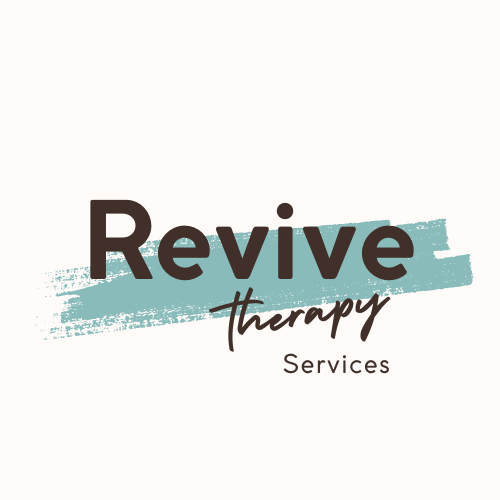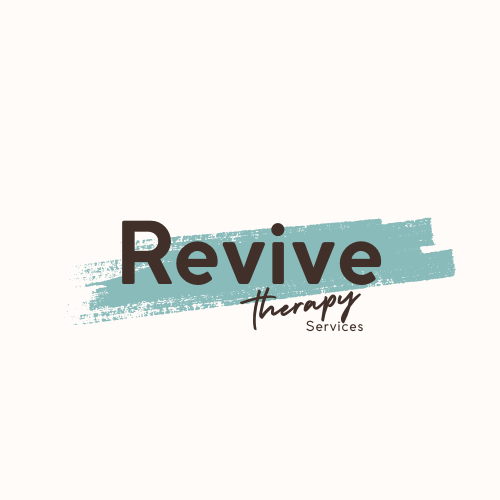Understanding Medical Trauma: A Comprehensive Guide for Individuals and Families
Medical trauma is an often overlooked but significant aspect of healthcare experiences. Whether you've personally gone through a distressing medical event or witnessed a loved one struggling with their health, understanding the impact of medical trauma is crucial for healing and recovery. At Revive Therapy in Philadelphia, PA, trauma-informed therapists, believe in the power of empathy, support, and education. In this comprehensive guide, we aim to shed light on medical trauma, provide practical tips for coping, and offer resources to help individuals and families navigate this challenging journey.
What is Medical Trauma?
Medical trauma refers to the psychological and emotional distress experienced by individuals as a result of medical procedures, diagnoses, or hospitalizations. It can occur in both acute and chronic health situations and affects patients of all ages, as well as their families. While the physical aspect of medical care is often the primary focus, the emotional toll of these experiences can be equally significant.
Understanding the Impact:
Medical trauma can have a profound impact on individuals and families. It can evoke feelings of fear, anxiety, helplessness, and even post-traumatic stress disorder (PTSD). For some, the trauma may arise from a single event, such as a traumatic accident or a life-threatening diagnosis. Others may experience cumulative trauma over time due to ongoing medical treatments or prolonged hospital stays.
Experiencing medical trauma can have profound effects on an individual's mental and emotional well-being, leading to a range of symptoms and challenges. Understanding these symptoms is essential for early intervention and support. Let's explore each symptom in more depth:
Anxiety and Panic Attacks:
Medical trauma can trigger intense feelings of anxiety, often resulting in panic attacks. These episodes are characterized by overwhelming fear, a racing heart, rapid breathing, trembling, and a sense of impending doom. Individuals may experience a fear of hospitals, medical procedures, or anything associated with the traumatic event. Coping with these panic attacks can be challenging, as they can occur unexpectedly and significantly impact daily life.
Depression and Mood Swings:
Coping with medical trauma can lead to feelings of sadness, hopelessness, and emotional numbness. Individuals may experience a pervasive sense of low mood, loss of interest in activities once enjoyed, and a diminished ability to experience pleasure. Mood swings, irritability, and difficulty concentrating are also common. It is important to recognize that depression can manifest differently for each individual, and seeking professional help can provide the necessary support and treatment options.
Flashbacks and Nightmares:
Intrusive memories of the traumatic medical event can resurface, causing distressing flashbacks and nightmares. These intrusive thoughts can be triggered by reminders of the trauma, such as medical settings, smells, or specific sounds. Flashbacks can feel as if the traumatic event is happening in the present moment, leading to feelings of fear, confusion, and a heightened sense of distress. Nightmares related to the trauma can disrupt sleep patterns and contribute to further emotional and psychological distress.
Avoidance Behaviors:
Individuals who have experienced medical trauma may develop a strong desire to avoid anything that reminds them of the traumatic event. This may include medical settings, doctors, certain procedures, or even conversations related to the event. Avoidance behaviors can be an attempt to protect oneself from experiencing distressing emotions and anxiety associated with the trauma. However, avoiding necessary medical care can have negative consequences on one's physical and emotional well-being.
Hyperarousal:
Medical trauma can leave individuals in a state of hyperarousal, where they constantly feel on edge and hypervigilant. They may experience heightened startle responses, have difficulty sleeping, and struggle with concentration and focus. The nervous system remains in a heightened state of alertness, which can be physically and emotionally draining.
Recognizing and understanding these symptoms is the first step in seeking appropriate support and treatment for medical trauma. Professional help, such as therapy, can provide individuals with effective coping strategies and interventions to address these symptoms. Therapists specialized in trauma-informed care can offer support and guidance tailored to the unique needs of each individual, fostering resilience, and promoting healing.
Strategies For Coping with the Aftermath of Medical Trauma
Coping with the aftermath of medical trauma requires individuals and their families to employ various strategies to navigate the emotional and psychological challenges that arise. While each person's journey is unique, the following coping strategies can provide guidance and support:
Seek Emotional Support:
Reaching out to trusted friends, family members, or a therapist who specializes in trauma can provide a vital source of emotional support. Sharing your experiences and feelings with someone who listens empathetically can help alleviate feelings of isolation and validate your emotions.
Educate Yourself:
Knowledge is power, and gathering information about your medical condition, treatment options, and potential outcomes can empower you to make informed decisions and reduce anxiety. Understanding the medical terminology, procedures, and potential side effects can help you feel more in control of your healing journey.
Practice Self-Care:
Engaging in activities that bring you joy and relaxation is crucial for your overall well-being. Prioritizing self-care can include participating in hobbies, exercising regularly, practicing mindfulness or meditation, or simply spending time in nature. These activities can help reduce stress, promote a sense of calm, and contribute to your overall resilience.
Communicate Openly:
Effective communication plays a vital role in coping with medical trauma. Expressing your feelings, concerns, and needs to loved ones, healthcare professionals, and support groups can help alleviate stress and foster understanding. By sharing your experiences, you can create a network of support that surrounds you with empathy and encouragement.
Build a Support Network:
Connecting with others who have had similar experiences through support groups or online communities can be immensely beneficial. Sharing stories, advice, and coping strategies with individuals who understand your journey firsthand can provide validation, comfort, and a sense of belonging.
Set Realistic Expectations:
Healing from medical trauma is a gradual and non-linear process. It is essential to recognize that setbacks and challenges are natural parts of the recovery journey. Setting realistic expectations and being patient with yourself allows for self-compassion and understanding during difficult times. Celebrate small victories and milestones as signs of progress, even if they may appear minor in the grand scheme of things.
By implementing these coping strategies, individuals and families can navigate the challenges of medical trauma with resilience, strength, and a sense of support. Remember, each person's healing journey is unique, and it is important to find the coping strategies that work best for you and your loved ones. Be gentle with yourself, seek the support you need, and know that healing is possible, even in the face of adversity.
Professional Help and Therapeutic Interventions:
While self-care and support from loved ones are essential, professional help may be necessary to address medical trauma effectively. Therapeutic interventions can provide targeted support and healing.
Medical trauma can have long-lasting effects on individuals and families, but with the right support, healing is possible. By understanding the impact of medical trauma, recognizing the symptoms, and implementing coping strategies, individuals and families can begin their healing journey. At Revive Therapy, we are here to walk alongside you, providing the support and guidance needed to navigate medical trauma with resilience and strength. Remember, you are not alone, and there is hope for a brighter tomorrow.
Gain Healing Through Therapy for Medical Trauma in Philadelphia, PA, and Regain Peace
At Revive Therapy in Philadelphia, we understand the impact of medical trauma and are committed to supporting individuals and families on their healing journeys. Our compassionate and experienced therapists specialize in trauma-focused interventions and provide a safe space for you to express your emotions and work toward recovery. We offer personalized treatment plans tailored to your unique needs, ensuring that you receive the support you deserve.
Follow the steps below to get started on your own healing path.
Read Our FAQ to answer any questions you may have.
Reach out via our convenient online contact form
Begin your journey to healing
Other Services at Revive Therapy
Getting therapy support is perfectly OK! You deserve a space to talk through life events that may be holding you back. Whether this is your first time in therapy or you’ve been here before, I am here to help you process, work through, and move toward your goals in a healthy and sustainable way. If you’re looking for other services at Revive Therapy in Pennsylvania, I offer other services. This includes Eating disorder treatment, body image issues, binge eating, and more. I offer support with EMDR therapy if you’re in need of more specialized support. Additionally, all services are offered via online therapy in Pennsylvania. When you’re ready for support. Call now!


